Here is a collection of the first 10 haiku from my Haiku of Japan series. I'm collecting them all in one post to give new readers a review of poems they may have missed and also to make a convenient collection to link to.
I am giving the haiku themselves, along with a photo, usually a woodblock print. If you want commentary on the poem, click the poem title to visit my post on that specific haiku.
Without further ado, here we go....
月ぞしるべこなたへ入らせ旅の宿
tsuki zo shirube
konata e irase
tabi no yado
—Basho
the moon’s guidance:
please come this way
a traveler’s inn
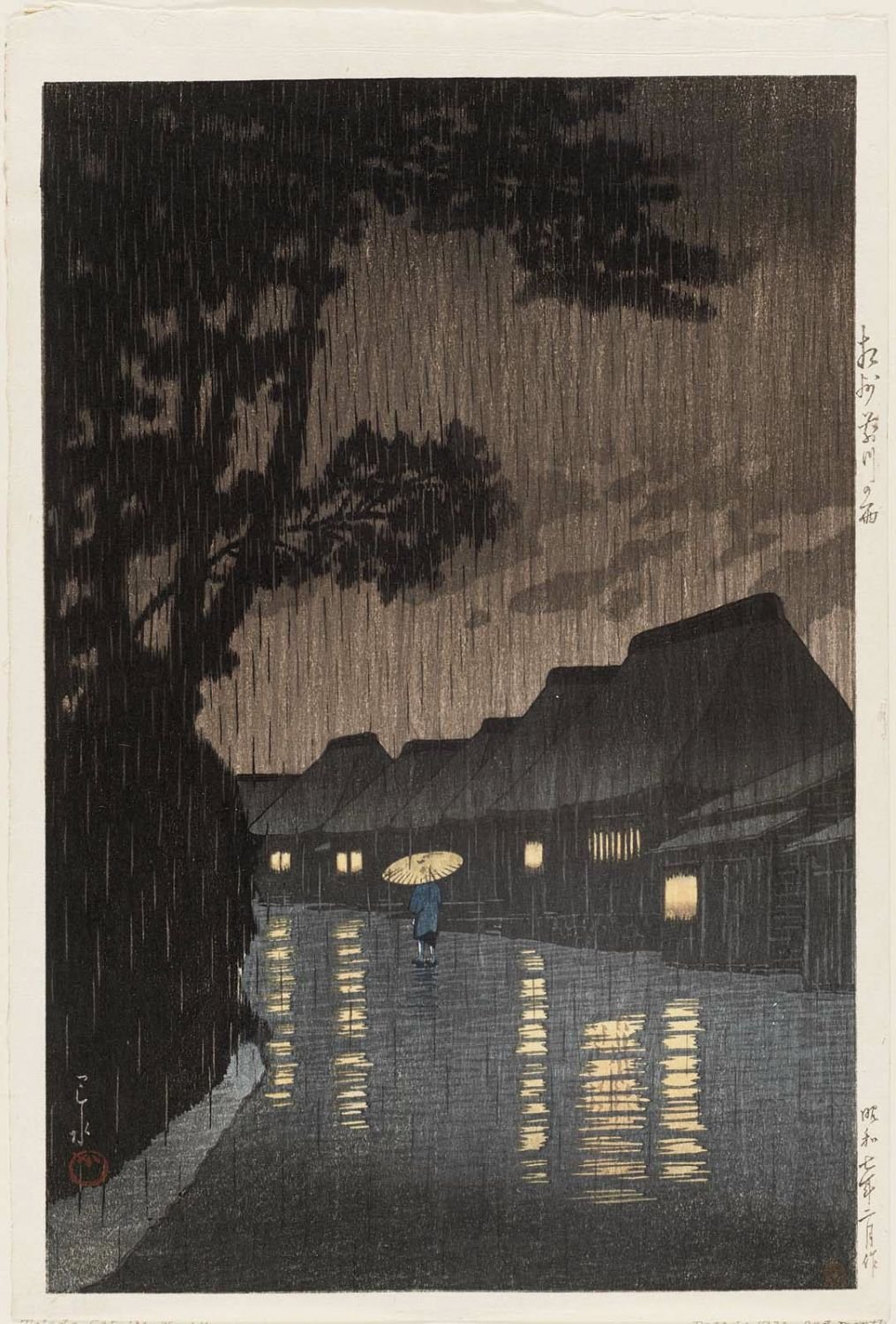
うまず女の雛かしづくぞ哀なる
umazume no hina
kashizuku zo
aware naru
—Ransetsu
a childless woman
tenderly she touches
the little dolls for sale
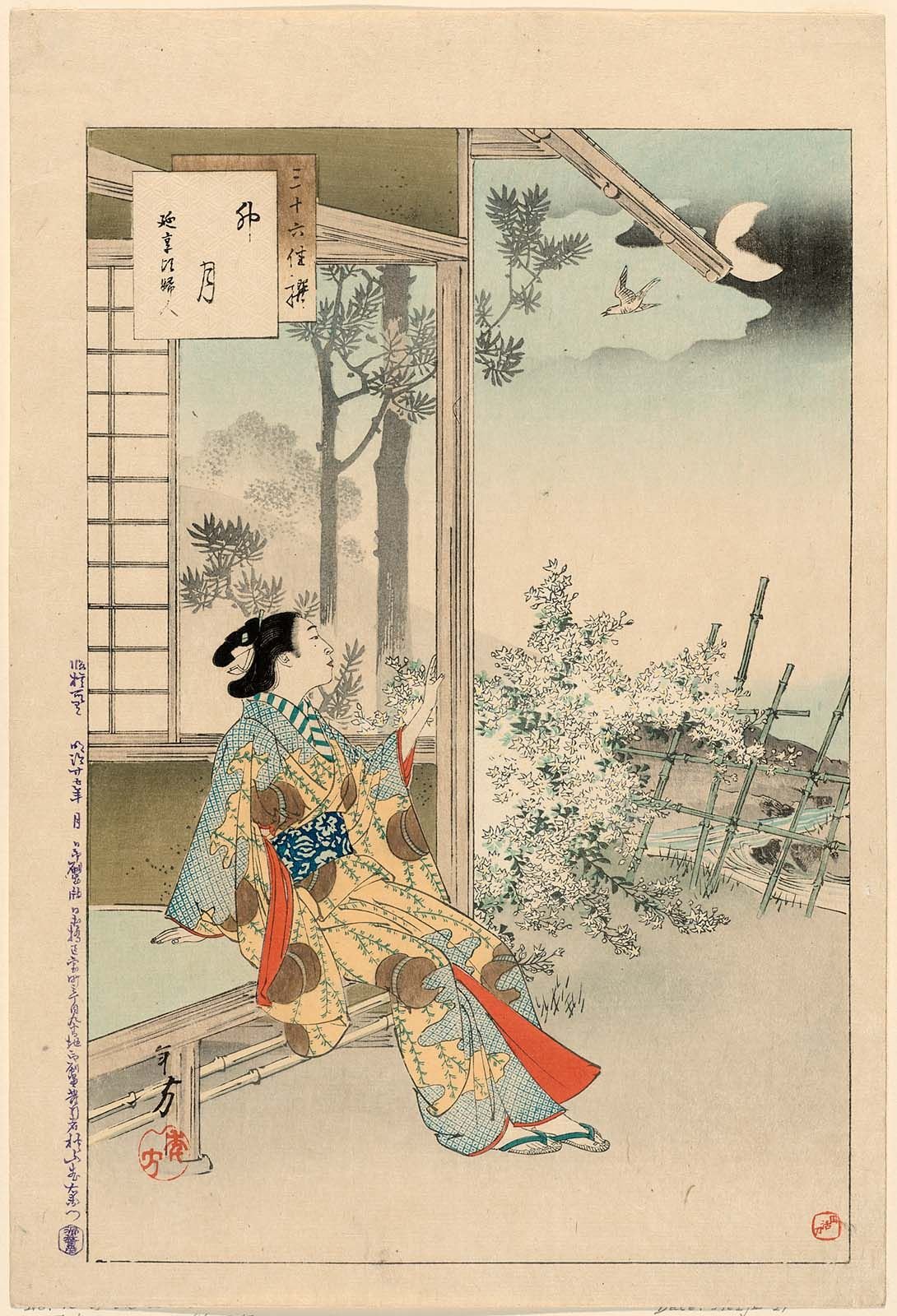
蝶老てたましひ菊にあそぶ哉
chou oite
tamashii kiku ni
asobu kana
—Enomoto Seifu
The butterfly grown old
its spirit plays
among chrysanthemums
詠むるや江戸には稀な山の月
nagamuru ya
Edo niha marena
yama no tsuki
—Basho
I stare at,
Rarely seen in Edo,
The moon in the mountain.
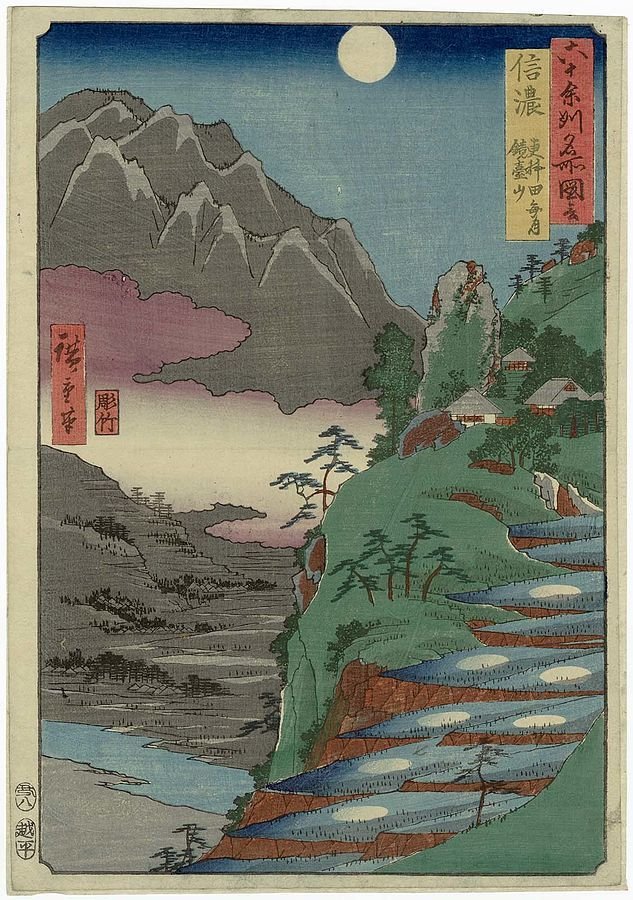
畠主の案山子見舞小て戻りけり
hatakenushi
kagashi ni oute
modorikeri
—Buson
The field owner
goes to check his scarecrow
then returns
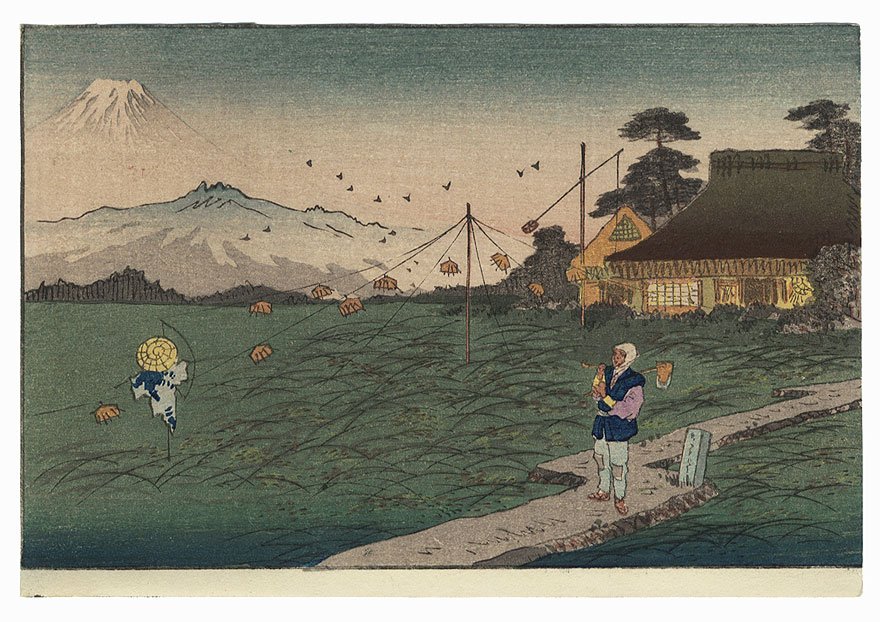
世の中や鳴虫にさへ上づ下手
yo no naka ya
naku mushi ni sa e
jouzu heta
—Issa
In this world
even among the insects...
some sing well, some don't
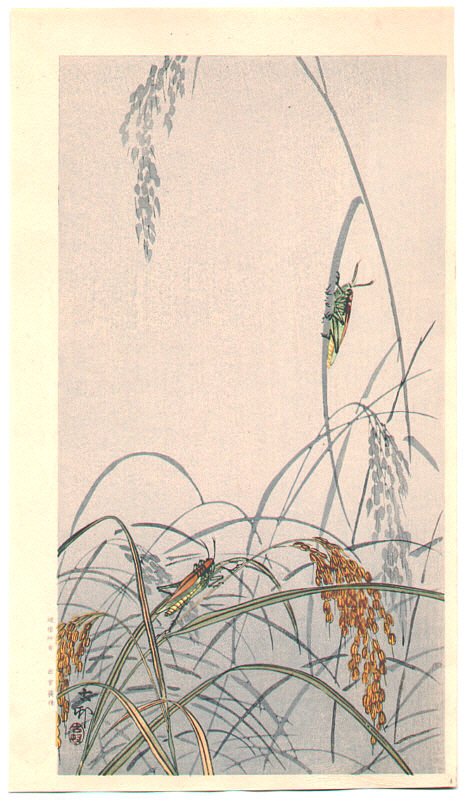
歩き続ける彼岸花咲き続ける
aruki tsuzukeru
higanbana
saki tsuzukeru
—Taneda Santoka
I keep walking
the spider lilies
keep blooming
(Tr. Gabi Greve)
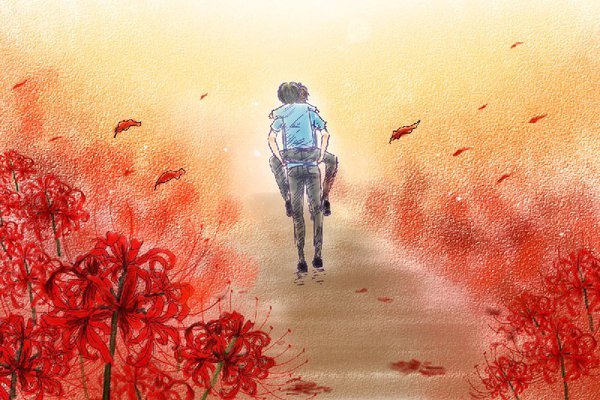
薫風や千山のみどり寺一つ
kunpuu ya
senzan no midori
tera hitotsu
—Shiki
cool summer breeze
a thousand green mountains
a lone temple

一葉散る咄ひとはちる風の上
hito ha chiru
totsu hito ha chiru
kaze no ue
—Ransetsu
one leaf falls
alas! another
with the wind
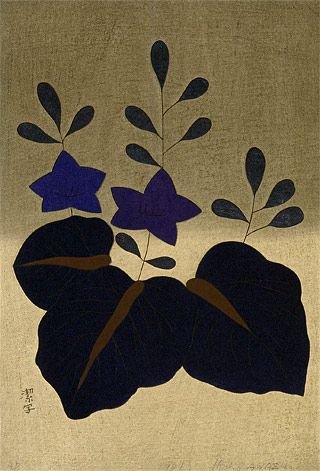
小言いふ相手もあらばけふの月
kogoto iu
aite mo araba
kyou no tsuki
—Issa
if only she were here
my nagging wife...
ah, tonight's moon
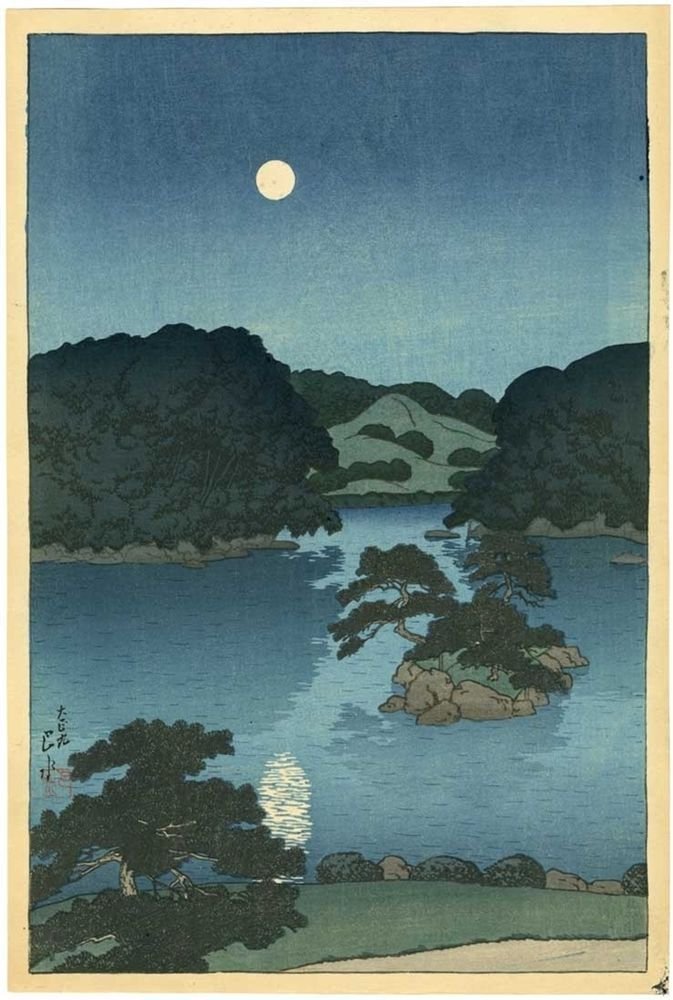
And there we go. Hope you enjoyed. Remember, you can click on the title of each haiku to go to the original post on that haiku where I give some commentary on the poem and perhaps some insight.
Also note, all of these were translated by me, except for number 7. Feel free to use any of these translations anywhere you want, but if you do, please credit me (or Gabi for #7). I ask that not so much because of my ego, but as a haiku reader myself I always want to know who did the translation so I can find more from them if I like it, so I'm always slightly annoyed when a web site or book doesn't provide that info.
Needless to say, if you enjoyed any of these, follow me for more. I try to post one a day. Sometimes I miss a day if work or family gets in the way, but I do try to keep up.
❦
 |
David LaSpina is an American photographer and translator lost in Japan, trying to capture the beauty of this country one photo at a time and searching for the perfect haiku. He blogs here and at laspina.org. |
